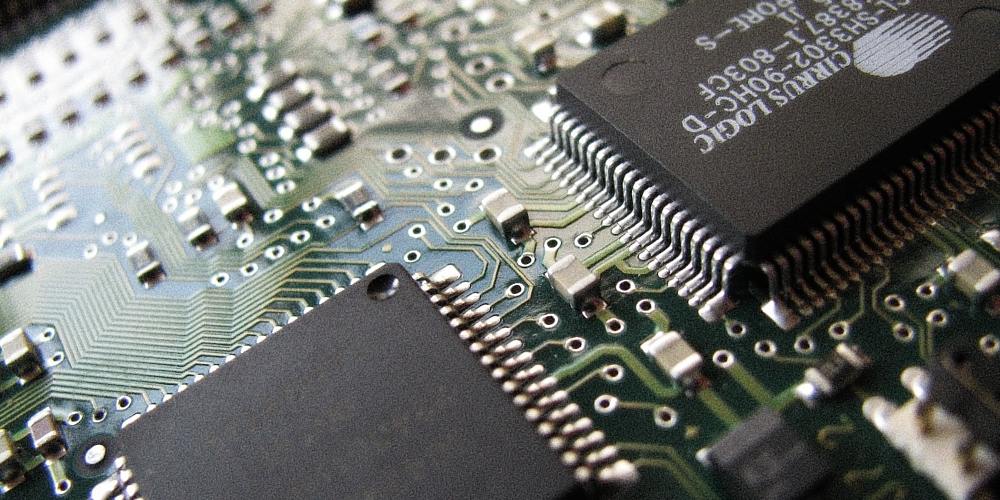- Chinese scientists have significantly improved the performance of supercomputer simulations using domestically designed GPUs, surpassing systems powered by Nvidia’s advanced hardware.
- Professor Nan Tongchao and his team at Hohai University achieved the performance gains through a “multi-node, multi-GPU” parallel computing approach, using Chinese CPUs and GPUs for large-scale, high-resolution simulations.
- The study highlights how U.S. sanctions aimed at limiting China’s access to advanced semiconductors may have inadvertently spurred innovation, leading to technological self-sufficiency and reduced reliance on foreign hardware.
- China’s recent achievement is part of a broader strategy to mitigate vulnerabilities in critical technologies by investing in domestic semiconductor production and software ecosystems, reducing dependence on foreign supplies.
- While the breakthrough is significant, experts caution that software optimizations alone cannot fully compensate for hardware limitations, emphasizing the need for continued advancements in both hardware and software for sustained performance improvements.
Editor’s Note: The sourcing of this article, including the sub-sources, focuses on a report from the South China Morning Post. This Hong Kong-based news outlet is owned by Alibaba and while not technically state-owned, it has been known to share narratives the Chinese Communist Party wants out. That’s not to say the report is inaccurate, but I’m skeptical about the 10x claim. With that said, the threat of any technological advancement beyond what’s operated within the United States is a concern to monitor.
(Natural News)—In a groundbreaking development that could reshape the global semiconductor landscape, Chinese researchers have achieved a near-tenfold performance boost in supercomputer simulations using domestically designed graphics processing units (GPUs), outperforming systems powered by Nvidia’s cutting-edge hardware. This milestone, detailed in a peer-reviewed study published in the Chinese Journal of Hydraulic Engineering, underscores China’s growing prowess in high-performance computing (HPC) and its determination to mitigate reliance on foreign technology.
The achievement comes at a pivotal moment in the global tech race, as escalating U.S. sanctions on advanced semiconductors have forced China to accelerate its efforts to develop homegrown alternatives. While skeptics caution that software optimizations alone cannot bridge hardware gaps indefinitely, the study highlights how innovative parallel computing designs and software tweaks can unlock unprecedented efficiency gains, even with less advanced hardware.
A breakthrough in parallel computing
The research, led by Professor Nan Tongchao of Hohai University’s State Key Laboratory of Hydrology-Water Resources and Hydraulic Engineering, focused on a “multi-node, multi-GPU” parallel computing approach. By leveraging domestically produced CPUs and GPUs, the team achieved significant performance improvements in large-scale, high-resolution simulations—critical for applications like flood defense modeling and urban waterlogging prevention.
“The challenge for Chinese scientists is even more daunting,” the study notes, pointing to the dominance of foreign manufacturers in producing advanced GPUs like Nvidia’s A100 and H100. Compounding the issue is Nvidia’s proprietary CUDA software ecosystem, which is restricted from running on third-party hardware, effectively locking out Chinese developers from accessing key tools for algorithm development.
Despite these hurdles, Professor Nan’s team demonstrated that software optimization techniques could dramatically enhance the efficiency of Chinese GPUs, enabling them to outperform U.S. supercomputers in specific scientific computations. This breakthrough not only challenges Nvidia’s dominance but also highlights the potential for alternative approaches to high-performance computing.
The broader implications of tech sanctions
The study’s findings underscore the unintended consequences of U.S. tech sanctions, which were designed to curb China’s access to advanced semiconductors and critical technologies. Instead of stifling innovation, these restrictions appear to have galvanized China’s efforts to achieve technological self-sufficiency.
“The accomplishment points to possible unintended consequences of Washington’s escalating tech sanctions while challenging the dominance of American-made chips, long considered vital for advanced scientific research,” the study states.
This development aligns with Beijing’s broader strategy to mitigate “chokepoint” risks in critical technologies—a term referring to vulnerabilities in supply chains that could be exploited by geopolitical adversaries. By investing heavily in domestic semiconductor production and software ecosystems, China aims to reduce its dependence on foreign hardware and software, ensuring its technological resilience in an increasingly fragmented global market.
Historical context: From dependency to innovation
The significance of this achievement cannot be overstated when viewed in the context of China’s decades-long struggle to catch up with Western semiconductor technology. Historically, China has relied heavily on imports for advanced chips, with U.S. companies like Nvidia, Intel and AMD dominating the market. This dependency became a glaring vulnerability as geopolitical tensions escalated, prompting the U.S. to impose sweeping export controls on advanced semiconductors and chip-making equipment.
In response, China has ramped up investments in its domestic semiconductor industry, with initiatives like the “Big Fund” injecting billions of dollars into research and development. While challenges remain—particularly in producing chips at the cutting-edge 3-nanometer and below nodes—this latest breakthrough demonstrates that China is making significant strides in leveraging existing hardware through software innovation.
What lies ahead?
While the study’s results are impressive, experts caution that software optimizations alone cannot fully compensate for hardware limitations. Nvidia’s GPUs, for instance, are renowned not just for their raw processing power but also for their versatility and integration with a robust software ecosystem. Replicating this level of performance across a wide range of applications will require continued advancements in both hardware and software.
Nevertheless, the study marks a significant step forward in China’s quest for technological sovereignty. As Professor Nan’s team continues to refine their parallel computing approach, the implications for fields like climate modeling, artificial intelligence and national security could be profound.
In the words of one industry observer, “This is a wake-up call for the global tech community. China is proving that it can innovate under pressure, and the rest of the world will need to adapt to this new reality.”
As the tech war between the U.S. and China intensifies, this study serves as a reminder that innovation often thrives in the face of adversity. Whether this breakthrough will lead to a broader shift in the balance of technological power remains to be seen, but one thing is clear: the race for semiconductor supremacy is far from over.
Sources include:

It’s becoming increasingly clear that fiat currencies across the globe, including the U.S. Dollar, are under attack. Paper money is losing its value, translating into insane inflation and less value in our life’s savings.
Genesis Gold Group believes physical precious metals are an amazing option for those seeking to move their wealth or retirement to higher ground. Whether Central Bank Digital Currencies replace current fiat currencies or not, precious metals are poised to retain or even increase in value. This is why central banks and mega-asset managers like BlackRock are moving much of their holdings to precious metals.
As a Christian company, Genesis Gold Group has maintained a perfect 5 out of 5 rating with the Better Business Bureau. Their faith-driven values allow them to help Americans protect their life’s savings without the gimmicks used by most precious metals companies. Reach out to them today to see how they can streamline the rollover or transfer of your current and previous retirement accounts.
Kamala Harris Says the American Dream Is “Gone”
by Modernity News
During a pre recorded interview, Kamala Harris once again failed to deliver any substantive outline of her policies, primarily attacking Donald Trump’s outlook and his first term in office. At one point when speaking about the economy, Harris appeared to suggest, in stark contrast to Trump, that the American Dream…
Gold Price Forecasts Skyrocket Following Moves by China and the Fed
by Sponsored Post
With the Federal Reserve beginning what most expect to be a sustained easing cycle, momentum continues to rise for gold and silver. Values have been steadily rising and the newest forecasts point to even more gains down the road. At the end of September, BMO Capital Markets published updated commodity…
Taxes and Tariffs and Trade: Oh My! Trump’s Plan to Bolster the Economy
by Just The News
In a bid to build a broader coalition, former President Donald Trump has outlined a vision of tax cuts, import tariffs, and “reciprocal trade” to preserve and restore American industries. Since coming down the escalator of Trump Tower in 2015, the Republican standard bearer has espoused unconventional trade policies and…
Expert Testimony: Mass Immigration Under Biden-Harris Is Driving Up Rents for Americans
by Breitbart
The arrival of millions of foreign nationals, many of whom are illegal aliens, under President Joe Biden and Vice President Kamala Harris is helping to drive up rents for working- and middle-class Americans, an expert witness told Congress Wednesday. Center for Immigration Studies Director of Research Steven Camarota told the…
This Year Marks First Since 1958 That Us Held No Oil and Gas Lease Sales
by Just The News
This year will be the first year since 1958 that the Bureau of Ocean Energy Management held no offshore oil and gas lease sales. Energy expert Alex Epstein, author of “Fossil Future,” argued at a recent House Budget Committee hearing the United States’ record-high oil production is in spite of…
Kamala’s Devastating Middle Class Taxes
by Independent Sentinel
With the election coming up, the IRS plans to reduce our taxes for 2025. it’s a common tactic to make it seem like they won’t tax us into oblivion once they return to office. CBS News: Some Americans could see lower federal income taxes in 2025 due to an annual…
Congress Passes Stop-Gap Spending Bill After Failed Mike Johnson Gambit
by Breitbart
Congress on Wednesday passed legislation that would fund the government through nearly the end of December. The House and the Senate passed a stop-gap spending bill that would push the government spending deadline to December 20. The measure, otherwise known as a continuing resolution (CR), keeps federal spending the same….
A ‘Bipartisan’ Bar Tried to Open in DC, Then Libs Cried That an Elephant Image Was ‘Hurtful.’
by The National Pulse
A new bar in Washington, D.C., whose political theme focused on bipartisan agreement and debate, succumbed to partisan pressure before the establishment could even serve its first drink. Originally billed as Political Pattie’s, the bar was flooded with complaints by liberals who said the establishment’s logo—specifically the Republican Elephant—was offensive…
Newsom Signs Bill Requiring Janitors to Take $200 Sexual Harassment Training
by Just The News
California Gov. Gavin Newsom signed a bill requiring companies that hire janitors to make sure janitors take sexual assault training every other year, and pay $200 per participant for sessions with under 10 janitors present, and $8 for sessions with 10 or more janitors. The bill also requires the government…
Biden-Harris Regime Prepares Another $8 Billion in Military Aid for Ukraine During Zelensky’s Washington Visit
by The Gateway Pundit
The Biden-Harris regime is once again prioritizing foreign interests over the well-being of American citizens, with plans to announce an eye-watering $8 billion in military aid for Ukraine during Ukrainian President Volodymyr Zelensky’s visit to Washington. This massive giveaway comes as Americans continue to face economic hardships, skyrocketing inflation, and…
‘Economic Dystopia:’ Silicon Valley Tycoon Predicts AI Will Take Over 80% of All Work
by Breitbart
Vinod Khosla, legendary Silicon Valley investor and entrepreneur, has predicted that AI will replace the majority of work in most jobs, necessitating the implementation of universal basic income (UBI) to prevent economic instability and inequity. Fortune reports that in a recent blog post, Vinod Khosla, the billionaire co-founder of Sun…


